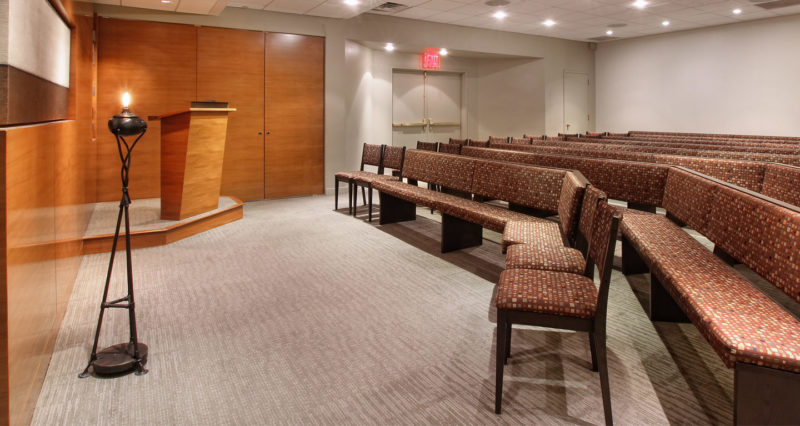Opinion
K’vod hamet
Though challenged, our end of life Jewish rituals endure
In Short
We meet how and whichever way we can, to celebrate or mourn, and everything in between
A rabbi I work with – who often officiates at funerals – told me the other day what he’s toting around in the back of his car. Random information? Far from it, because that snapshot reflects where we are right now, and where we could be going.
Up to early last year he might have had an extra pair of bad weather boots and a rabbinic manual, but these days he’s carrying around a weighted tripod and a shovel too, and who knows what else. “I suspect they will be permanent features in my trunk,” Rabbi Neil Zuckerman of Park Avenue Synagogue told me.

Courtesy
All this extra paraphernalia has pretty much become standard for clergy, funeral directors, and others who are on and off the field. They have to be prepared, after all, for new and unexpected realities as we in the industry do everything possible to respect and uphold Jewish traditions and rituals deeply rooted in our Jewish faith, as we honor and bury our dead in a challenging age.
So the old menu of business-as-usual services and features is now peppered with new ones: online consultations with families in bereavement, live Zoom coverage from chapel and graveside, digital condolence registers, QR codes to download relevant materials and programs … and, of course, all manner of sanitation, ventilation and distancing equipment and protocols touching everyone from Chevrot Kadisha to clergy to families to office staff.
A year into the pandemic, most of us – I’d venture to say – have come to, if not master, then certainly adequately navigate what we need to do in our personal and professional lives to stay safe … despite how uncomfortable and disrupting it all is.
Still, in the now 20 years of Plaza Jewish Community Chapel’s existence as a community supported and focused funeral chapel – one of only three in the entire country – we have been tested as never before to maintain and even grow our value in the city and surrounding region. That’s because we shoulder the Jewish precept of K’vod hamet, honoring the dead, as our calling to the work we do, and that’s a constant – pandemic or not.
This has played out in more ways than through what I’ve just described. Arguably, that’s been the easy part.
What’s less visible, yet just as important, is our responsibility and actions to keep our community whole – meaning not only supporting each other in a seamless manner through end-of-life events, but also ensuring that every aspect and element of care and ritual is maintained, respected, and nourished.
So if that means doing outreach to palliative care medical staff at area hospitals, or advocating that every member of more than a dozen area congregational Chevrot Kadisha get priority vaccinations as essential workers – as Darren Picht, our Executive Vice President of Funeral Operations did – then we’ve done that too.
Even as I write this, the greater world is in yet another state of transition. Vaccination rates are on the upswing, establishments – including many Jewish institutions – are opening ever so slightly.
So to say what is going to go, and what is going to stay after this pandemic is over –or at least tamed to a major degree – is at this point only speculation.
But what I can say with certainty from my practice and observation is that Jewish tradition and ritual is a constant across and within every life cycle event along the spectrum of our lives, including end of life. I see it every day from my place at this communal table. We adapt. Such is the spirit of our observance and our history.
And so, we carry hope that we will gather once again in person for that wedding – or that funeral. But until then, we meet how and whichever way we can, to celebrate or mourn, and everything in between.
Stephanie Garry is Executive Vice President of Communal Partnerships, Plaza Jewish Community Chapel, N.Y.












